Page 111 • (1,222 results in 0.037 seconds)
-
students receive some form of financial aid through scholarships, grants and endowments, many of which are funded by PLU constituents. Gifts to Q Club help lessen the financial strain on students and their families, support the faculty in enriching curriculum, and allow students to expand their campus activities and learning experiences. Many people have gone above and beyond the call to support PLU and Q Club. We profile a few of them here. While their affiliation to PLU is varied, they share a spirit
-
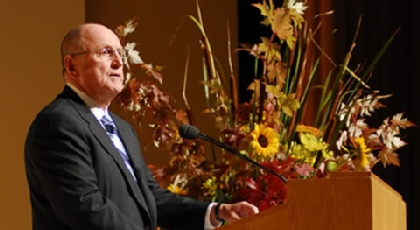
, others may be unsettling or scary for some, Anderson said. “The drumbeat of change is rumbling around us,” he said. “The next decade our focus must broaden.” Some of the ideas that the university community will need to wrestle with include: – The demographics of PLU’s student body are changing. The student body will be more diverse- both ethnically and socioeconomically. And their learning styles will be different. “The implications for schedule and calendar, as well as campus and classroom are many
-
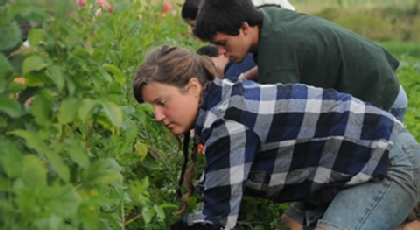
-profit farm which aims to promote self-sufficiency, inclusion and independence for people with developmental disabilities and rural youth. “I just liked their mission,” Anna Payton, a first-year student from Puyallup, Wash., said. “I really like that they give disadvantaged youth and people with disabilities the opportunity to work.” Payton and the rest of the students in her group spent the day learning about Left Foot’s mission and helped farm workers pull weeds.“Their hearts seem to be in the
-
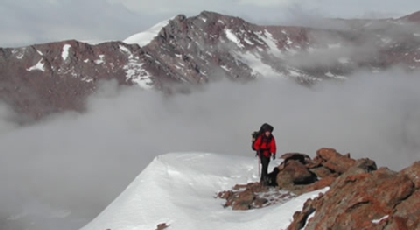
gathering point for all Antarctic expeditions and scientific research. Once at McMurdo, they will spend two weeks learning about how to survive on the ice (they’ll be living out of a tent, 500 miles west of McMurdo), packing their food, and going over their itinerary for their six-week stay. Joining them on this expedition, which was funded by a $125,000 National Science Foundation grant secured by Todd, will be two University of Washington students, a researcher from the University of California
-
clubs and organizations with the idea of starting a unicycle club on campus. After a long process of gathering signatures and university approval, the club was officially approved in January 2009. “I figured I might as well give it a shot,” Bendzak said. “I spent a lot of time figuring out if unicycles were even allowed on campus.” LUNICYCLERS stands for “Lutes with a Unique and Nifty Interest in Carefully Yet Courageously Learning an Exquisitely Radical Skill.” A mouthful of an acronym, Bendzak
-
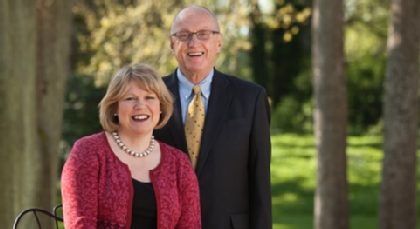
president’s residence. According to Bjerke, MaryAnn Anderson also has been the university’s ambassador extraordinaire. “MaryAnn has brought a sophistication, grace and purpose to everything from campus events and activities, to individual donor cultivation, to our university signature community events,” he said. In many ways it will be business as usual for the university during the coming year, as teaching and learning continue and administrative routines remain unchanged with Loren Anderson in the lead
-
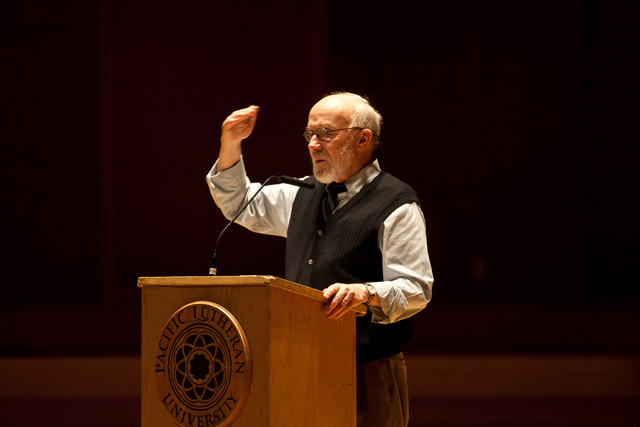
not a religion major so I don’t get a chance to study these things,” said senior psychology major Sarah Eisert of Borg’s lecture. “It’s a more cohesive critique of traditional Christianity and how it can be seen differently and in a way that I could understand.” Read Previous Passion for learning Read Next Extending a hand to veterans COMMENTS*Note: All comments are moderated If the comments don't appear for you, you might have ad blocker enabled or are currently browsing in a "private" window
-
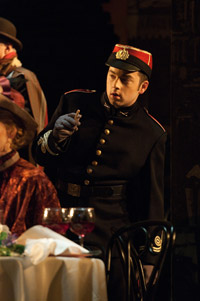
says it’s well worth it. “Me not being the greatest multi-tasker in the world it is a challenge, but it is a challenge I would not give up,” Marzano said. “This is what I love to do and this is what I’m here at school to study doing. I try to view them as kind of in the same boat. I’m here learning what I’m doing at 7 p.m. that night. The only thing that is a bummer is the commute. That’s the only downside. Everything else, all the time I put in rehearsing, is just the name of the game. I learn no
-
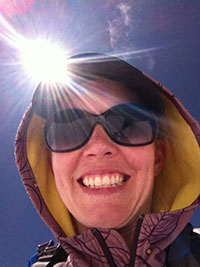
Incorporated, a guide service with well-trained ascension custodians. The group will spend two days training, learning about technical ice and crampon climbing, and then hike from Paradise parking lot to Camp Muir, which is the usual starting point for climbers attempting to summit the mountain. In the beginning, Stephens says that she would reach out to every new climber as they signed on asking, “so, what do you think?” But now that the group has been assembled, and she’s had some time to train
-

major event, filling both Olson Auditorium and Memorial Gymnasium, and about 25 PLU staff members—from the Division of Natural Sciences and other departments—volunteer each year, along with members of the community. “This is the Olympics of MESA,” says J.R. Nobles, director of Tacoma/South Puget Sound MESA at PLU. “This is what our students have worked for all year long, to show off everything they’ve learned.” Denner has a lot of learning to show off—although he definitely is not the showy type
Do you have any feedback for us? If so, feel free to use our Feedback Form.


